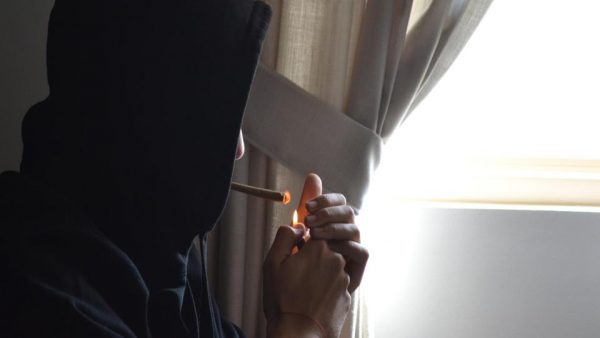By: Danah Al Ansari
@DanaAlAnsari
Drug abuse, addiction, smuggling and related crimes have long been a mainstay of Egyptian literature and cinema.
In the 2015 TV series Taht Al Saytara (Under Control), which aired during the month of Ramadan, audiences saw the perils of addiction from their living rooms.
They witnessed Egypt’s youngest stars portray addicts who succumb and act in slow motion as their social fabric comes undone and lives unravel.
While it forces audiences to come to terms with an issue most prefer to keep taboo, the show also raised to the fore the scope and success of rehabilitation in Egypt.
Mohamed Hassan, an addiction expert who helps addicts recover, told The Caravan the three forces that encourage addiction.
“It depends on the personality, how the individual is treated by his family and external factors. External factors are actually the least that trigger addiction,” he said.
Addiction now begins at around 13-14 while 10 years ago it was 18, he added.
According to the United States National Institute on Drug Abuse, 70 percent of high school students will have taken an illegal drug by the time they are seniors.
Adolescence is when individuals are exposed to a greater interpersonal system than the home environment and the societal consequences of addiction can therefore hinder a successful transition.
The success of treatment largely depends on the readiness to commit to treatment.
A lack of conviction means that even if the abuser overcomes their physical addictions, the psychological dependency coupled with a natural desire to assert autonomy will inevitably find them back in drug circles.
“If an addict’s family seeks help, the treatment usually has zero effect. On the other hand, if someone seeks help because they want to be treated, there is a higher chance of recovery,” Hassan said.
Aly, who now works at a petroleum company, experienced the former situation, where his parents forced his rehabilitation, which eventually resulted in his relapse. However, once he started seeking treatment on his own, he was able to recover and overcome his addiction.
“When my parents found out and took me to rehab, I was sober for six months. But one day I went drinking with my friends. It made me remember what the drugs felt like and I relapsed,” Aly said.
Merna, a student at MIU, however, sought treatment, but to no avail, as a result of emotional and mental issues that constantly push her towards relapse.
“The pills help me escape my problems. I had a friend that would always do drugs and after my parents got divorced, he introduced me to them and I haven’t stopped ever since,” she said.
On the other hand, others, like Omar, a junior at AUC, are comfortable with their drug intake and never sought help.
“Drugs make me feel good. I don’t get buzzed the same way I used to in the beginning. I could smoke up and then go to class and be completely normal. I need it to function properly,” he added.
Some addicts suffer terrible experience when attempting to score drugs from dealers. Merna believes this is especially true for female addicts.
“The dealers assume that I am some kind of low life that would sleep with them. It is very humiliating. My guy friends… They all try. I haven’t been responsive but if I cut my connections, where will I get the drugs?” she said.
Aly too experienced a number of dangerous encounters with dealers.
“[The dealers] didn’t care that they’ve known me for a long time. They beat me up and I remember bleeding when I went home to my parents. They stole all the money my friends and I had. They broke my car’s windows and kept throwing rocks at it,” he told The Caravan.
As he was attempting to escape, he bumped into a car whose owner took advantage of his condition and demanded monetary damage.
As a result, Aly’s parents had to pay EGP 10,000 and that is how they found out about their son’s addiction.
Addiction is further compounded by the social stigma that accompanies it.
A survey of 83 individuals on campus revealed that 73% of respondents believe that drug use is criminal or reckless behavior as opposed to mental illness.
“Most of my friends are guys. All the girls are freaked out by how blunt I am. Some of them don’t talk to me because they believe I’ll make them look bad or that their reputation might be ruined,” Merna told The Caravan.
However, Aly nevertheless strongly believes that there is always an escape from addiction, even if the process elongates.
“Yes, I have relapsed but I am good now, I don’t need drugs anymore. You just need the right place and the right doctor.”
